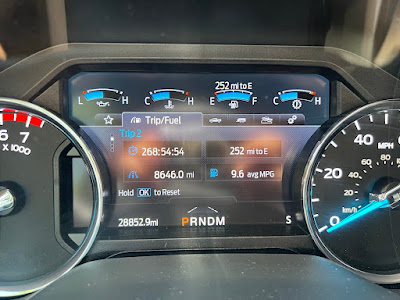I was talking with friends about selling my business. I'm not looking to do this, to be clear, although there's always a price. There are a couple of scenarios. Let's peer down this rabbit hole (again):
My Business Has No Value. Not my scenario, but if you have an unprofitable business, you're in the category of needing a liquidation value. Some people don't believe in the myth of profitable retail and think all hobby game stores are in the liquidation category. The liquidation value of a business is pennies on the dollar. Ten cents on the dollar for inventory, furniture, fixture and equipment (IFFE) is about right.
Most (former) store owners will dig in, keep their inventory and sell it online out of their garages for years into the future, in hopes of getting 20 cents on the dollar. They have never been good at figuring out the value of their time. I once bought a friends store for 20 cents on the dollar in consignment, and it nearly broke me. I wouldn't have done it, except I picked out his inventory.
Your Business Has Some Value. It's a little bit profitable. Let's look at sale multiples. Do 3-5x your net profits exceed your liquidation value? Let's say you have $10K a year in net profit. You have $50K in IFFE. Liquidation will get you $5K, $10K if you don't value your time. You could argue a 3-5 multiple of your $10K net for $30-50K. You can see here that being just a little bit profitable will vastly increase your payout. Even at that highest multiple though, you're just emerging barely alive.
This scenario assumes your business is worth keeping rather than liquidating. Buying a business in this fashion is deciding, as a new buyer, that you want to personally run this business. This kind of business is a "buy a job." It has little potential. It's a place to park your life or maybe the life of a child who needs to find their place in the world. The new owner would expect to take your current salary, plus that $10K a year. Living the dream.
Your Business Has A LOT of Value. You're living off it. It's your retirement plan. You're in the groove and can do it until you go blind or die quietly in your bed. This is my scenario (although not my numbers). Let's say you do $100K a year in profit. You have $500K in IFFE. Liquidation might get you $50K, which is ridiculous in this scenario. However, treating it like a real business, you might attempt to get a multiple of your net profits. A 3-5 multiple of your net is $300-500K. However, we have a couple problems.
First, finding someone to pay you half a million dollars for your hobby game store is going to be difficult. It would be nice, but it would be unprecedented for a store that's probably doing (let's say a 5% net profit), $2 million dollars a year in gross sales. It's not unreasonable, just unlikely. I do think the world is changing and the odds are increasing.
Second, $500K really isn't enough money. If you're enjoying your perpetual $100K a year in profit, $500K isn't going to provide you that steady income you need in perpetuity. Let's assume you can get a long term return of 5% on your new $500K nest egg. That's only providing you $25K a year in income, a far cry from your current $100K.
The amount of money you actually need to replace your $100K annual income is a payout of $2,000,000. I have to say a one year payout of your gross is a multiple that's thrown around, but it's way more than five years of your net. You better have a turn key operation and that key better be made of unobtainium. You aren't likely to find such a generous buyer. So clearly, a profitable business, providing you the money you need, is never going to be worth selling. However...
You Need Out. Nothing lasts forever. You've simply had enough and want to do the next thing. Or your health is failing. You are ready to retire. You have made some missteps. You need to sell it. In my case, I will eventually have social security income, retirement savings, and probably a small inheritance. I might decide I have enough and don't mind my $25K extra a year in exchange for my time back. You can also see that putting more money into this monster is probably the wrong choice when there are other retirement investments available.
There may come a time when I'm ready, but I might not be prepared. In fact, the longer I wait, the less likely I'll be prepared. This is very dangerous, because it not only takes time to sell a business, the reasons you might want to sell it, such as the business not doing so great because of your distractions, can greatly impact that business value. Drop down from highly profitable to break even and our pay day becomes a fire sale.
My impression is that after decades of fostering the business, you have to get out while on top, but also at a time of your liking. You have to sell the cash cow while it's still in good health, not when it's forgotten out in the pasture. When you have to sell it, is when you look around at what's possible. A $500K graduated inventory reduction sale might be the payday you're looking for.
You might start courting potential buyers years in advance. You may decide to hand it to your heir, who may require years of training and experience. At the moment I have a key man insurance policy that will give those around me a fighting chance at making the business work without me. So if you've got this profitable business, you're walking a knife edge here. Nobody can possibly give you what it's worth. Finding a buyer who will pay you less than it's worth is a time consuming challenge that seems foolish considering your current circumstances.
As a small business owner, it's just another thing you need to think about.





